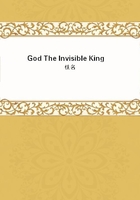
第35章
And besides these base people there are the stupid people and the people with minds so poor in texture that they cannot even grasp the few broad and simple ideas that seem necessary to the salvation we experience, who lapse helplessly into fetishistic and fearful conceptions of God, and are apparently quite incapable of distinguishing between what is practically and what is spiritually good.
It is an easy thing to conclude that the only way to God is our way to God, that he is the privilege of a finer and better sort to which we of course belong; that he is no more the God of the card-sharper or the pickpocket or the "smart" woman or the loan-monger or the village oaf than he is of the swine in the sty. But are we justified in thus limiting God to the measure of our moral and intellectual understandings? Because some people seem to me steadfastly and consistently base or hopelessly and incurably dull and confused, does it follow that there are not phases, albeit Ihave never chanced to see them, of exaltation in the one case and illumination in the other? And may I not be a little restricting my perception of Good? While I have been ready enough to pronounce this or that person as being, so far as I was concerned, thoroughly damnable or utterly dull, I find a curious reluctance to admit the general proposition which is necessary for these instances. It is possible that the difference between Arminian and Calvinist is a difference of essential intellectual temperament rather than of theoretical conviction. I am temperamentally Arminian as I am temperamentally Nominalist. I feel that it must be in the nature of God to attempt all souls. There must be accessibilities I can only suspect, and accessibilities of which I know nothing.
Yet here is a consideration pointing rather the other way. If you think, as you must think, that you yourself can be lost to God and damned, then I cannot see how you can avoid thinking that other people can be damned. But that is not to believe that there are people damned at the outset by their moral and intellectual insufficiency; that is not to make out that there is a class of essential and incurable spiritual defectives. The religious life preceded clear religious understanding and extends far beyond its range.
In my own case I perceive that in spite of the value I attach to true belief, the reality of religion is not an intellectual thing.
The essential religious fact is in another than the mental sphere.
I am passionately anxious to have the idea of God clear in my own mind, and to make my beliefs plain and clear to other people, and particularly to other people who may seem to be feeling with me; Ido perceive that error is evil if only because a faith based on confused conceptions and partial understandings may suffer irreparable injury through the collapse of its substratum of ideas.
I doubt if faith can be complete and enduring if it is not secured by the definite knowledge of the true God. Yet I have also to admit that I find the form of my own religious emotion paralleled by people with whom I have no intellectual sympathy and no agreement in phrase or formula at all.
There is for example this practical identity of religious feeling and this discrepancy of interpretation between such an inquirer as myself and a convert of the Salvation Army. Here, clothing itself in phrases and images of barbaric sacrifice, of slaughtered lambs and fountains of precious blood, a most repulsive and incomprehensible idiom to me, and expressing itself by shouts, clangour, trumpeting, gesticulations, and rhythmic pacings that stun and dismay my nerves, I find, the same object sought, release from self, and the same end, the end of identification with the immortal, successfully if perhaps rather insecurely achieved. I see God indubitably present in these excitements, and I see personalities Icould easily have misjudged as too base or too dense for spiritual understandings, lit by the manifest reflection of divinity. One may be led into the absurdest underestimates of religious possibilities if one estimates people only coldly and in the light of everyday life. There is a sub-intellectual religious life which, very conceivably, when its utmost range can be examined, excludes nothing human from religious cooperation, which will use any words to its tune, which takes its phrasing ready-made from the world about it, as it takes the street for its temple, and yet which may be at its inner point in the directest contact with God. Religion may suffer from aphasia and still be religion; it may utter misleading or nonsensical words and yet intend and convey the truth. The methods of the Salvation Army are older than doctrinal Christianity, and may long survive it. Men and women may still chant of Beulah Land and cry out in the ecstasy of salvation; the tambourine, that modern revival of the thrilling Alexandrine sistrum, may still stir dull nerves to a first apprehension of powers and a call beyond the immediate material compulsion of life, when the creeds of Christianity are as dead as the lore of the Druids.